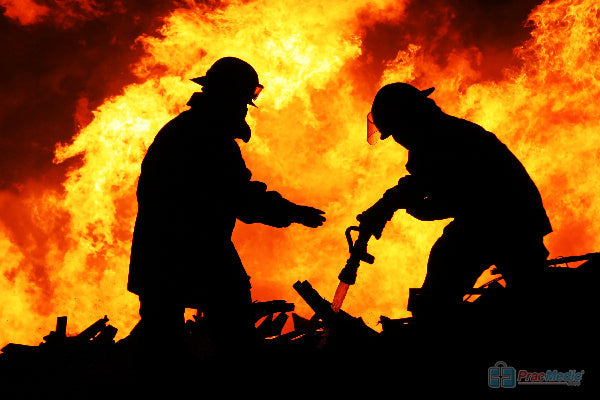
Handling Food Allergies in the Face of a Natural Disaster
Share

Natural disasters have been happening on our planet since time immemorial but along with our weather, natural calamities have drastically changed from the past decades due to climate change. Typhoons became stronger and wildfire cover extensive lands as compared to what we’ve experienced before when these instances are still a rarity. Sadly, this means that most of us now may get affected by one of these natural occurrences and we need to be prepared when that time comes. The dangers in these situations are multiplied if you or any of your loved ones have food allergies and being prepared will be an understatement.
Natural Disasters

There are several reasons why natural disasters occur like for example an earthquake is a natural disaster that happens when there’s a strong movement of the Earth’s tectonic plates, this may lead to volcano eruption, tsunamis, and landslide.

Our weather, depending on the climate, may cause typhoon, tornadoes, hurricane, and drought. Extreme cold or extreme hot temperatures may also occur and these occurrences may lead to floods and mudslides. All these we mentioned may result from one issue to another, for instance drought may cause food shortages and floods due to heavy rainfall may encourage the spread of diseases.
Disaster Possibilities

Given these situations, knowing the possibilities of what we will be facing may make a lot of difference. We’re not required to look so far to prepare our mind for a strategy but only assess what these occurrences may bring first hand, anticipation is all we needed. For example, if there’s a report of a super typhoon that will soon hit your area, think of moving out or evacuating. If you have a basement for hurricanes, that will not be the best place to stay during a super typhoon as it may bring with it strong winds and also high level of rainfall that may lead to flooding. Not all houses are made of concrete so there’s a possibility of it being destroyed but if you choose to stay inside your house and if it was built ready for this type of disaster, stay away from your windows, use power surge or better to turn off your house electrical system to prevent being electrocuted and stay away from flood waters.
Handling Food Allergies

We can’t stop a natural disaster from happening but we can always prepare for it. Like most situations, preparation is key in food allergy safety. Even if there are no reports of an upcoming disaster, you can always prepare for what might yet to come. Check records or previous news or history of what disaster occurred in your area before and it can all be done online now. From that information you can start your preparation. You can create a checklist of what to do per disaster that you can print out or save in your smartphones. This is very useful especially if you need to be certain on what to do or where to go before or during a disaster, if there’s an evacuation center or you need to put up a survival camp, which may present its own challenges for people with food allergies.

Having a checklist will also provide you with many options or steps that you can take or emergency hotlines that you can contact such as lists of nearest hospitals, fire and police stations. Aside from the checklist, you need to prepare an emergency kit or bag that you can easily locate and take with you. Red Cross has a list of essentials that you need to have in your emergency bag that you can check here. For food allergy safety, you need to add an epinephrine auto-injector (EAI) and have our Sammie Medicine Case that is designed for this type of situations.
Having our Sammie Med Case will also help you organize your medicines that will surely save time in case of an anaphylaxis before or during a disaster. Don’t forget about water, allergy safe foods, and own utensils that should last for weeks. Keep in mind that most places are not allergy friendly and if you decide to go to an evacuation center, you still need to accept the possibilities of cross contamination. Having your own food and water will also minimize the possibilities of anaphylaxis since medical assistance may take time if not hard to come by during a natural disaster. Hand sanitizers, rubbing alcohol, soap, and wet wipes shouldn’t be missed out as well. Extra batteries for your flash light and power bank for your gadgets will help ensure that you can make a call if needed. Additionally, always be mindful of expiration dates of your medicines, EAI, and food in your emergency kits.

Being prepared is different from being paranoid and knowing what to do should not result to complacency. These guides will not work if you tend to panic instead of being calm and organized, so try running your plans that you made with your loved ones especially if the danger is near your area. Once again, all these advices can and should be improved depending on your needs, location, and situation.
Resources:
Earth Times http://www.earthtimes.org/encyclopaedia/environmental-issues/natural-disasters/
Allergy Amulet http://www.allergyamulet.com/blog/2018/9/26/food-allergies-natural-disasters-a-different-kind-of-storm
American Red Cross https://www.redcross.org/get-help/how-to-prepare-for-emergencies/survival-kit-supplies.html
Medium https://medium.com/@Weresquirrel/survival-tetris-packing-a-go-bag-for-food-allergies-924506ebdf59
